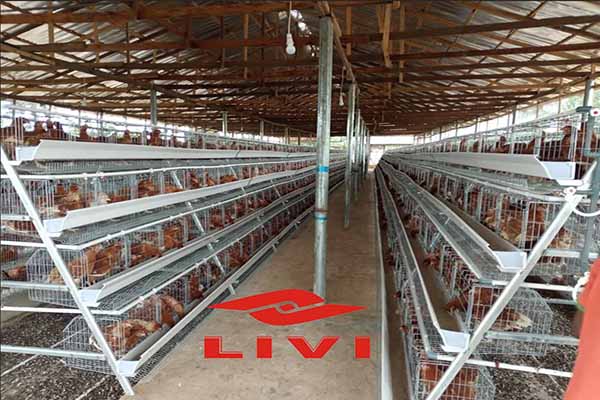Optimizing Chicken Cages in Cameroon for Large-Scale Farming: A Comprehensive Guide
Time : 2025-06-27
Large-scale farming in Cameroon has seen significant growth over the years, and poultry farming stands out as one of the most profitable sectors. Among the essentials of poultry farming, chicken cages play a crucial role in maintaining a healthy and productive flock. This article will delve into the importance of chicken cages in large-scale farming in Cameroon, provide insights into the different types of cages available, and highlight best practices for their use.
The Significance of Chicken Cages in Large-Scale Farming
In large-scale poultry farming, ensuring the health and well-being of the flock is paramount. Chicken cages offer several benefits:
– Improved Hygiene: Properly designed chicken cages allow for easy cleaning, which minimizes the risk of disease outbreaks.
– Increased Efficiency: Cages allow for efficient use of space, enabling farmers to keep more chickens in a smaller area.
– Enhanced Growth and Productivity: Proper ventilation and temperature control within the cages contribute to the overall health and growth of the chickens.
– Ease of Management: Cages facilitate the handling and monitoring of chickens, making it easier for farmers to manage their flocks effectively.
Types of Chicken Cages Suitable for Large-Scale Farming in Cameroon
When it comes to choosing chicken cages for large-scale farming in Cameroon, several types are available:
1. Wire Cages
Wire cages are among the most common types of chicken cages. They offer good ventilation and are easy to clean. However, they can be prone to wear and tear due to the chickens’ beaks and claws.
2. Plastic Cages
Plastic cages are another popular option, especially in warmer climates. They provide good protection for the chickens, keeping them safe from predators and harsh weather conditions. Moreover, they are easy to clean and disinfect.
3. Wooden Cages
Wooden cages are ideal for large-scale farming due to their durability and insulation properties. They are also more comfortable for the chickens compared to wire or plastic cages. However, they require regular maintenance and are more expensive to install.
4. Mobile Cages
Mobile chicken cages are perfect for large-scale farms that need to rotate their flock or change the location of their chickens regularly. They are also more space-efficient and facilitate better ventilation.
Best Practices for Chicken Cages in Large-Scale Farming in Cameroon
To ensure optimal performance and longevity of the chicken cages, consider the following best practices:
1. Size and Spacing
The size of the chicken cages should be sufficient to accommodate the birds comfortably. Generally, each chicken should have at least 2-3 square feet of space. Additionally, the spacing between the cages should be adequate to prevent the spread of disease.
2. Material and Design
Choose high-quality materials that are resistant to corrosion, wear, and tear. Ensure that the design of the cage allows for proper ventilation and drainage. For mobile cages, ensure that the wheels are sturdy and that the cage can be locked securely when necessary.
3. Maintenance and Cleaning
Regular maintenance and cleaning are crucial to prevent disease outbreaks and ensure the overall health of the chickens. Clean the cages thoroughly after each flock’s rotation or after an outbreak of disease.
4. Environmental Control
Maintain appropriate temperatures and humidity levels within the cages. Proper ventilation is essential to prevent heat stress and respiratory problems.
Conclusion
In conclusion, chicken cages play a vital role in large-scale poultry farming in Cameroon. By selecting the right type of cage, maintaining and cleaning them regularly, and ensuring proper environmental control, farmers can improve the health, growth, and productivity of their chickens. By investing in quality chicken cages and following best practices, large-scale poultry farmers in Cameroon can achieve significant success in their ventures.
Tags:












